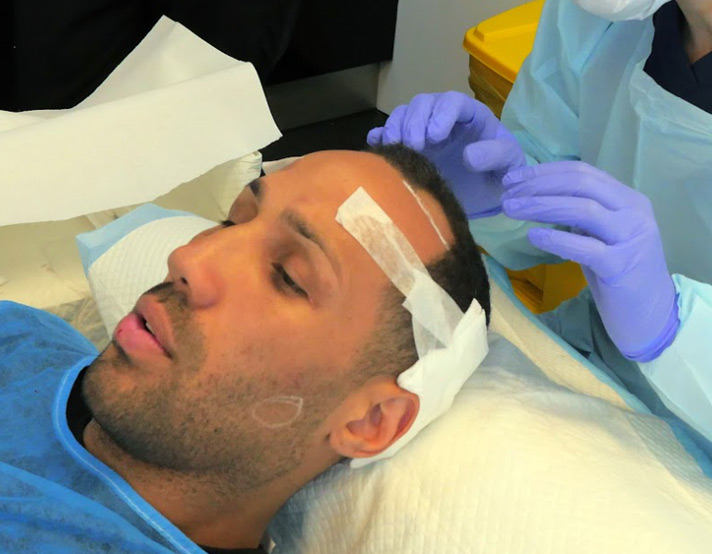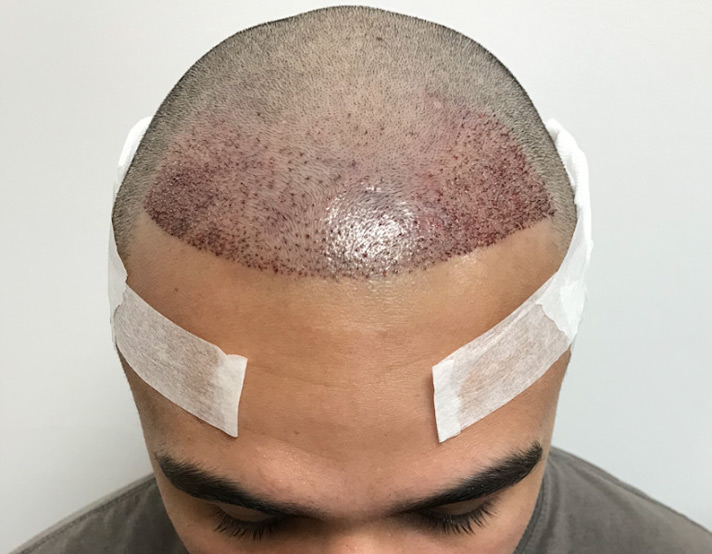Afro Hair Transplant
Afro hair transplants differ from other types of hair transplants mainly due to the unique characteristics of Afro-textured hair. Any hair transplant clinic must have experience and understanding of these.

The challenges of Afro Hair transplant
An Afro hair transplant specifically addresses the challenges of tightly curled Afro-textured or curly hair. The complexity of performing an Afro hair transplant lies in the nature of the hair, which grows at a curved angle from the follicle, requiring experienced surgeons and specialised techniques for successful outcomes.
Performing a hair transplant on Afro-textured hair requires specific experience and expertise. Surgeons need to be familiar with the nuances of this hair type to ensure successful outcomes. Consequently, choosing the right Afro hair clinic is crucial.
FAQ’s
Transplanting Afro-curly hair can be difficult as it is curly. The curls do not stop at the scalp but extend into the root of each hair, meaning they are harder to extract from the donor area without easily damaging it. The damage rate (dissection rate) is higher in afro-curly hair types than in Asian or European hair types.
Transplants involving Afro hair carry an increased risk of keloid scarring because of the hair’s inherent curl. Additionally, aligning the curved follicles precisely to replicate natural hair patterns is essential, further complicating the procedure.
Due to this, there’s a slightly increased risk of keloid scarring in individuals with Afro hair.
The success rate of Afro hair transplants can be quite high, often comparable to transplants with other hair types.
However, it’s important to note that “success” in hair transplants is subjective and depends on various factors like the surgeon’s skill, the quality of the hair from the donor and the patient’s scalp condition.
Yes, you can use a wig after hair transplant surgery, but waiting until your scalp has sufficiently healed is important. This typically means waiting a few weeks post-surgery to ensure that the transplanted follicles are not disturbed, and the scalp is not irritated.
The results of an Afro hair transplant are generally permanent. The transplanted hair follicles, taken from a donor area of the scalp where hair is more resistant to balding, maintain this resistance even after being relocated.
However, it’s important to note that the original hair surrounding the transplant area may continue to thin or recede over time, which could affect the overall appearance.
View more information within our Knowledge Base
Why I need a Afro hair clinic?
Afro hair is typically more curly and coarser compared to other hair types. This curl extends beneath the scalp, meaning the follicles are also curved. This requires surgeons to employ different techniques when extracting and implanting follicles to avoid damaging them.
There is also the concern of lower density of hair follicles compared to those with straighter hair types. This means that surgeons must be exceptionally skilled in achieving a natural-looking density and coverage for Afro hair transplants.
The expertise and specialised care offered at the British Hair Clinic play a pivotal role in ensuring the transplant’s success and in meeting the specific aesthetic goals of individuals with this hair type.
